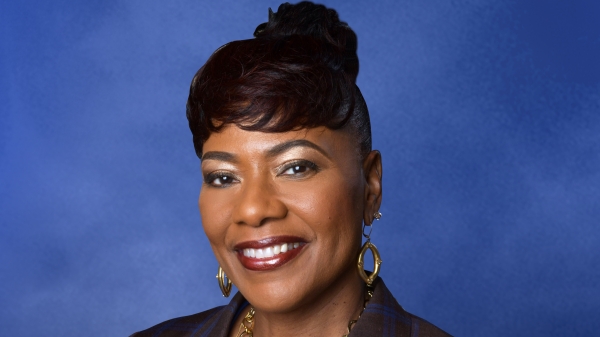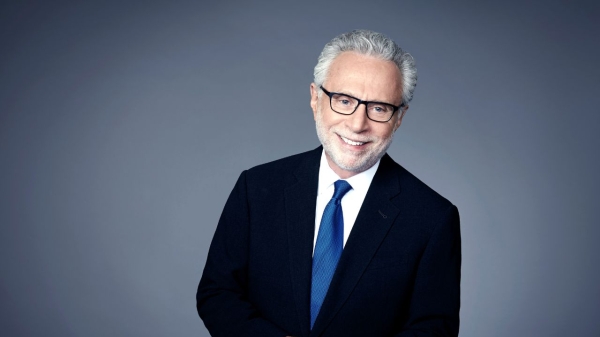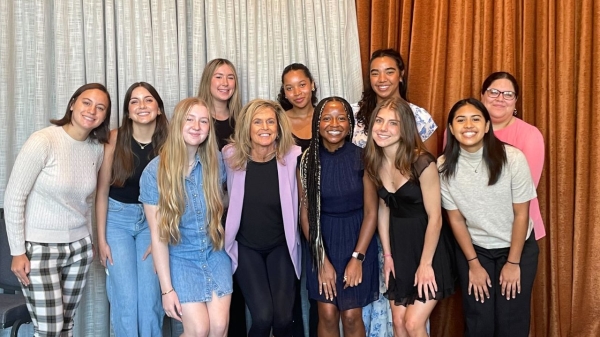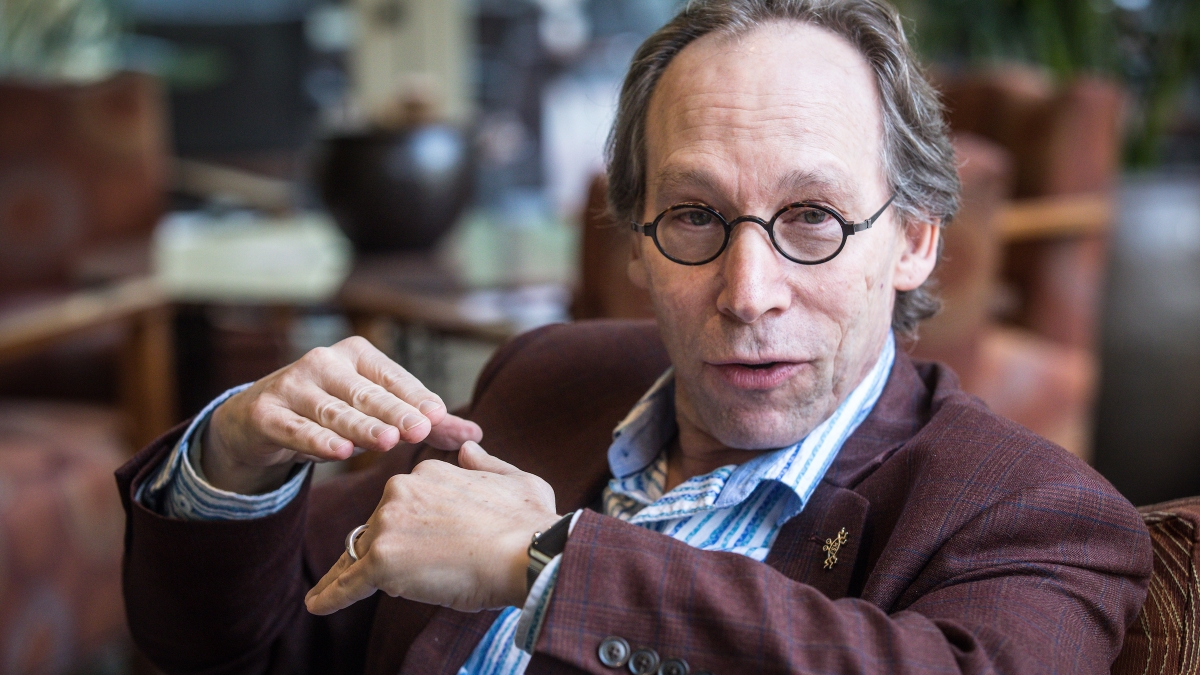Losing the truth is no less disconcerting than losing gravity. Suddenly, you’re down a rabbit hole where nothing makes sense and you don’t know what to believe. Normal rules don’t apply any more.
What do you do?
Educate, present a process and data for people to arrive at their own conclusions, and speak to them in a language they understand.
That was the topic of a discussion Tuesday between internationally recognized theoretical physicist Lawrence Krauss and James Weinstein, the Dan Cracchiolo Chair in Constitutional Law at the Sandra Day O'Connor College of Law at Arizona State University. (See it here.) The conversation was part of Second Nature’s Presidential Climate Leadership Summit, which is part of ASU’s Sustainability Solutions Festival.
Before that chat, KraussKrauss is a professor in ASU's School of Earth and Space Exploration and is part of the Department of Physics in the College of Liberal Arts and Sciences. He is director of the Origins Project, a university initiative created to explore humankind's most fundamental questions about our origins. gave an overview to ASU Now.
Question: You are going to be talking about our new idea of "alternative facts"?
Krauss: There have always been "alternative facts." They’ve just been wrong.
Q: What happens when facts are dismissed, seen as optional or replaced with “alternative facts”?
A: A healthy democracy depends on access to information, because you can’t make reasonable voting decisions without knowing what’s happening.
More importantly, the government requires access to information to make reasonable public policy. That’s a key point.
Governments are going to make policies. If they don’t make policies based on empirical evidence, the policies are going to be bad policies. So they rely on science. Scientists should decide what to do in science, and in a democracy voters should decide what to do.
Ultimately, the voters can’t make reasonable voting decisions and government can’t make reasonable policies if they don’t have access to proper information.
If they discard it, distort it or ignore it, the policies are going to be bad. It’s that simple.
Q: Or accepting pseudo-science like creationism?
A: There’s a deep influence.
First of all, it produces bad policy now, but it also ultimately leads to a more poorly informed electorate — both in the point of view of voting, but also if there’s a notion that there’s no such thing as objective reality, that you can’t trust key sources of information, then how do you proceed as a human being?
Ultimately, it’s a process of education, and we’re at an educational institution.
What too many people think is that science is a bunch of facts. Science is a process to determine how the world works, to ask questions, to separate nonsense from sense.
That’s what we should be teaching. When the government gives up that whole notion of the scientific process, it sets a poor example for parents and children in the school system.
Q: So how do you effectively communicate facts in this kind of an environment?
A: You don’t start with the facts. You start with the process of how to uncover facts.
In a world where people have learned not to trust people and a lot of people sound good on both sides, then you’re automatically starting from a position of weakness in a sense.
There’s also a sense that scientists are a sort of liberal-leaning whatever. There’s a long history in teaching in education that says the only way people can learn is by confronting their own misconceptions.
Ultimately, what you have to do is present a process by which a reasonable person will say, "This seems reasonable, and this seems reasonable, but wait! It leads to an opposite conclusion from what I have."
Then they’ll confront their own misconceptions. One has to start with how you get to the facts, not saying that global warming is happening, but how do we know? Is it complicated? Can the average person understand it? Also, more importantly, present data. Data is a little bit different than facts. Talk about how the globe is warming and people say, "That’s just modeling." Show the data. Show pictures. Show stuff that is evidence in your hands. Then I think people will be more open and accessible. ...
I think that’s ultimately it. If you want people to start trusting, speak in a language they can understand.
They’ll naturally distrust experts. I think the good news about these "alternative facts" is that people are beginning to be distrustful of the people who are speaking "alternative facts."
People are beginning to be skeptical, which is the first step in thinking for yourself. And we’re seeing that happen. I have more faith than I did two weeks ago.
Ultimately, reality has a way of biting you in the butt. It can take a long time before that happens. Even George Orwell said, "Ultimately, you knock up against reality." And as one of my favorite science fiction writers Philip K. Dick said, "Reality is that which continues to exist even when you stop believing in it."
Top photo: Foundation Professor Lawrence Krauss talks Tuesday about the detrimental effects of "fake news" and "alternative facts" within communities, education and policy makers. Photo by Charlie Leight/ASU Now
More Law, journalism and politics

Peace advocate Bernice A. King to speak at ASU in October
Bernice A. King is committed to creating a more peaceful, just and humane world through nonviolent social change.“We cannot afford as normal the presence of injustice, inhumanity and violence,…

CNN’s Wolf Blitzer to receive 41st Walter Cronkite Award for Excellence in Journalism
Wolf Blitzer, the longtime CNN journalist and anchor of “The Situation Room With Wolf Blitzer,” will accept the 41st Walter Cronkite Award for Excellence in Journalism, Arizona State University has…

Cronkite School launches Women Leaders in Sports Media live-learn program
Women in a new sports media program at Arizona State University got a solid game plan from a sports veteran at an Aug. 20 welcome event.“Be humble, be consistent and be a solver,” Charli Turner…
